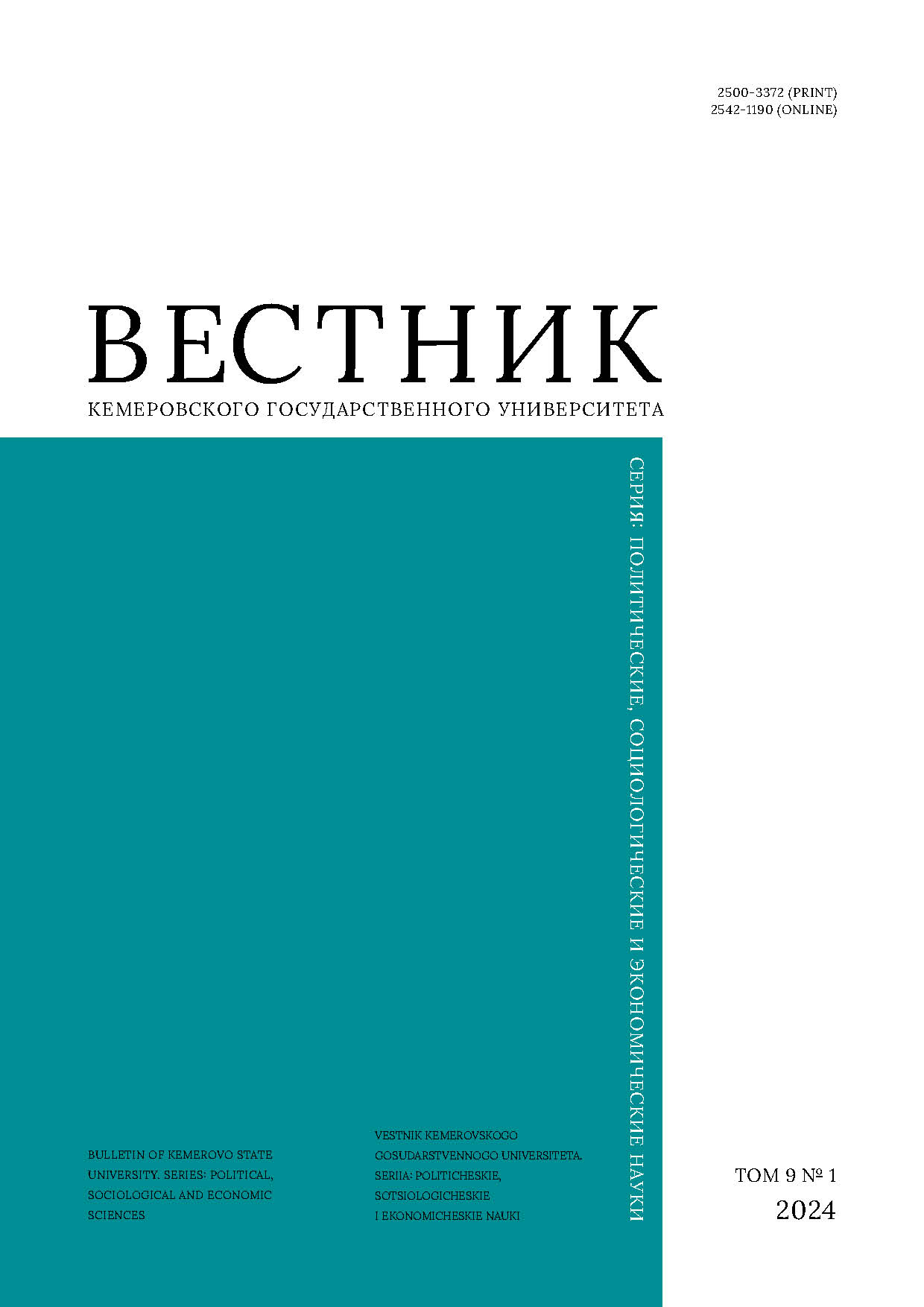Penza, Russian Federation
Penza, Penza, Russian Federation
Internationalization is a key aspect of education export and one of the most promising lines of higher education development. For successfully becoming a member of the host community, a foreign student as an object of research is forced to assimilate and accept new cultural patterns. However, even when entering a new socio-cultural environment under the most favorable conditions, adaptation difficulties and problems usually arise. The purpose of the article is to identify the factors and conditions for the successful adaptation of foreign students in regional universities using the example of the Penza Region’s universities. The research is based on scientific concepts of students’ social adaptation in a university, as well as concepts of an educational environment creation and functioning. The study considers the reasons for choosing Russia as a country of study based on the author’s questionnaire of Penza universities’ foreign students, secondary analysis of sociological research data on similar topics, and analysis of statistical data. The authors discover that foreign students in Russia face difficulties at various levels: linguistic, conceptual, moral, informational, climatic, communicative, pertaining to everyday life, etc. Favorable conditions contribute to increasing the university’s prestige and the education internationalization levels, become an important factor for choosing an educational institution and quickly including foreign students in the educational process.
education export, internationalization, foreign students, socialization, social adaptation
1. Klyushnikova E. V. Analytical review of the key problems of exporting domestic education in Russian language. Tver: TSU, 2017, 38. (In Russ.) https://www.elibrary.ru/yueuea
2. Duran A., Allen E. Exploring how professional associations socialize student affairs graduate students and new professionals. Journal of Student Affairs Research and Practice, 2020, 57(2): 132-147. https://doi.org/10.1080/19496591.2019.1625779
3. Mikhailova N. K. Motivational models of students’ employment and professional socialization. Kreativnaya ekonomika, 2020, 14(3): 333-346. (In Russ.) https://doi.org/10.18334/ce.14.3.100685 EDN: https://elibrary.ru/MDGRAG
4. Quinton W. J. So close and yet so far? Predictors of international students’ socialization with host nationals. International Journal of Intercultural Relations, 2020, 74: 7-16. https://doi.org/10.1016/j.ijintrel.2019.10.003
5. Yakovleva A. N. Socialization of schoolchildren and students. St. Petersburg: SPb. un-t ped. masterstva, 2001, 98. (In Russ.)
6. Popova S. M., Yanik A. A., Karpova S. F. Transformation of Russia’s migration policy: stages, features, problems (1989-2023). Administrative and municipal law, 2023, (4): 24-51. (In Russ.) https://doi.org/10.7256/2454-0595.2023.4.43666 EDN: https://elibrary.ru/VBXQFC
7. Solovtsova I. A., Malakhova V. G. Normative model of foreign students’ professional socialization in regional university. Concept, 2021, (9): 63-77. (In Russ.) https://doi.org/10.24412/2304-120X-2021-11062 EDN: https://elibrary.ru/CXDRWG
8. Tereshchenko T. M., Fedotova L. A. Academic adaptation of foreign students in the educational environment of the pedagogical university. Izvestiya Volgogradskogo gosudarstvennogo pedagogicheskogo universiteta, 2020, (3): 68-73. (In Russ.) https://www.elibrary.ru/cybxph
9. Rybakovskii L. L. History and theory of population migration. Book 1. World migrations: historical fragments and their determinants. Moscow: Ekon-Inform, 2016, 210. (In Russ.)
10. Pismennaya E. E. Social consequences of educational immigration to Russia (issues of theory and research methodology). Dr. Soc. Sci. Diss. Abstr. Moscow, 2009, 64. (In Russ.) https://www.elibrary.ru/znytpn
11. Pismennaya E. E. Social effects of educational migration and policy in the sphere of attracting foreign students in Russia and abroad. Moscow: Economic education, 2009, 140. (In Russ.)
12. Furnham A., Heaven P. Personality and Social Behavior. St. Petersburg: Piter, 2001, 360. (In Russ.)
13. Triandis H. K. Culture and social behavior. Moscow: Forum, 2007, 382. (In Russ.) EDN: https://elibrary.ru/QXQOPF
14. Nalchadzhian A. A. Psychological adaptation. Moscow: Eksmo, 2010, 368. (In Russ.) EDN: https://elibrary.ru/QXYLEB
15. Ivanenkov S. P. Problems of modern youth socialization. St. Petersburg: Sintez-Poligraf, 2003, 418. (In Russ.) EDN: https://elibrary.ru/QXFXOD
16. Lebedev K. Yu. Socio-psychological factors of professional socialization of working students of the humanities. Cand. Psych. Sci. Diss. Moscow, 2004, 164. (In Russ.) https://www.elibrary.ru/mdpvit
17. Khayrullina Y. R. Socialization of personality: theoretical and methodological approaches. Kazan: KSEU, 2003, 355. (In Russ.) https://www.elibrary.ru/qochwn
18. Arefiev A. L., Sheregi F. E. Foreign students in Russian universities. Moscow: Tsentr sotsiologicheskikh issledovanii, 2014, 228. (In Russ.)
19. Psychological aspects of personality socialization in the context of modern education: Proc. III All-Russian Sci.-Prac. Conf., Ishim, 15 Dec 2012. Ishim: P. P. Ershov IPI, 2013, 184. (In Russ.) https://www.elibrary.ru/rgttrl
20. Ivanova G. P., Shirkova N. N., Logvinova O. K. Foreign student at a Russian university. Moscow: Rusains, 2022, 137. (In Russ.) EDN: https://elibrary.ru/GJPMXC
21. Mazitova L. T. Social adaptation of foreign students (on the example of Bashkortostan universities). Dr. Soc. Sci. Diss. Ufa, 2002, 139. (In Russ.) https://www.elibrary.ru/nmedpr
22. Skliarov E. S. The level and nature of socio-cultural adaptation of foreign students in the Russian region. Izvestiya Tula State University, 2023, (3): 152-164. (In Russ.) https://doi.org/10.24412/2071-6141-2023-3-152-164 EDN: https://elibrary.ru/DYJGPC
23. Puzanova Zh. V., Larina T. I. Social dimension of students’ problems under the development of the contemporary university infrastructure. RUDN Journal of Sociology, 2019, 19(4): 800-813. (In Russ.) https://doi.org/10.22363/2313-2272-2019-19-4-800-813 EDN: https://elibrary.ru/ZEYEJS
24. Socialization in higher education and the early career, eds. Weidman J. C., De Angelo L. Cham: Springer, 2020, 323. https://doi.org/10.1007/978-3-030-33350-8



















